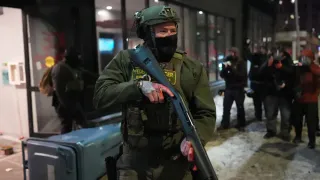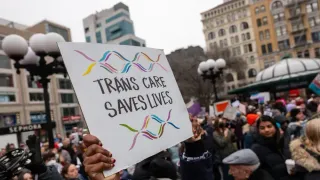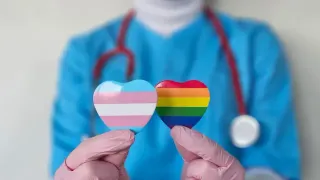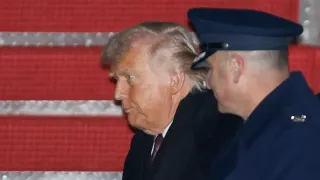December 9, 2017
SF Mayor Pushes for HIV/AIDS Funds
Seth Hemmelgarn READ TIME: 3 MIN.
San Francisco Mayor Ed Lee is working to restore HIV/AIDS funding that was recently cut by the national Centers for Disease Control and Prevention.
The CDC recently told the city it's cutting $1.4 million for HIV/AIDS surveillance and prevention for the five-year grant cycle that begins in January.
Tuesday, November 28, the mayor proposed backfilling $700,000 to cover the gap through the 2017-18 fiscal year, and it's expected that the city will provide similar funding again next year.
Over the years, it has become common for the CDC to cut funding to San Francisco and for the city to make that up. However, recent federal decreases have hit as the city works to reach the goals of its Getting to Zero campaign: No HIV-related deaths, infection, or stigma by 2020.
"We have little control over what happens to state and federal funding, but we are taking proactive measures to ensure critical services in San Francisco are protected," Lee said in a statement. "Our goal is Getting to Zero and to do that we need sustained investment and continued commitment. By passing this budget supplemental, we are safeguarding the health and well-being of our residents."
The money will help preserve services including linkages to care for people who test positive, training for HIV testing counselors, and efforts to track existing HIV cases.
Gay Supervisor Jeff Sheehy, who's living with HIV, said in an interview, "We're making great progress on Getting to Zero here, and maintaining and sustaining our effort is essential to actually getting to zero."
Sheehy, who sits on the supervisors' Budget and Finance Federal Select Committee, said the panel would vote on the funding Thursday.
Quickly linking people who test positive to care is "one of the key pieces" of the city's efforts, he said.
"We know that if you're undetectable, you're uninfectious, so the quicker we can get people into care, the quicker we can get the virus suppressed," said Sheehy.
UCSF's Alliance Health Project Director Lori Thoemmes called Lee's move to backfill funding "a pretty amazing thing."
Thoemmes' organization provides HIV testing services, as well as mental health, substance use, and other work that may include HIV prevention.
The city's funding help would mean "we can continue to provide the level of service we're providing," she said.
Reaching the Getting to Zero goals "relies on this foundation," said Thoemmes. "It relies on this historic support. ... It's really a testament to the leadership of the city and the community."
In a statement, San Francisco AIDS Foundation CEO Joe Hollendoner said, "Last week on World AIDS Day our community honored those lost in the early days of the epidemic and we pledged our commitment to ending the epidemic for everyone. Our progress has been enabled by the steadfast commitment of the City and County of San Francisco to fund HIV prevention, care, and housing services. We thank Mayor Lee and the Board of Supervisors for their steadfast support, which becomes increasingly important as political pandemonium continues in Washington."
Along with money for HIV/AIDS, Lee's proposed $9.6 million supplemental will also cover funding for in-home support services and support for recipients of Deferred Action for Childhood Arrivals, commonly known as DACA. DACA has helped some people avoid deportation, and the city is helping to cover application fees for the program.
The city's two-year budget includes a $10 million state and federal impacts reserve to cover unexpected shortfalls stemming from changes at the state and federal level.
Since the 2012-13 fiscal year, San Francisco officials have backfilled $14.9 million in cuts to CDC and Ryan White HIV/AIDS funding to the city's Department of Public Health.






